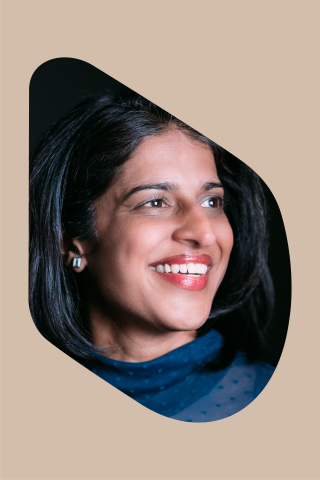 When we talk about diversity in candidate selection, our attention often centers on ethnicity, gender, or orientation. This episode brings attention to a vital yet often overlooked aspect: social class diversity in elite programs and job recruitment. Sema Burney (BCom’97, MBA’02) joins Maëlle Morin, a third-year undergraduate student in managing for sustainability to explore how a student's socio-economic background influences their school experiences and career path and how businesses can benefit from having more diverse perspectives in their organizations.
When we talk about diversity in candidate selection, our attention often centers on ethnicity, gender, or orientation. This episode brings attention to a vital yet often overlooked aspect: social class diversity in elite programs and job recruitment. Sema Burney (BCom’97, MBA’02) joins Maëlle Morin, a third-year undergraduate student in managing for sustainability to explore how a student's socio-economic background influences their school experiences and career path and how businesses can benefit from having more diverse perspectives in their organizations.
Socioeconomic background can impact different phases of an individuals’ academic and professional life, including the kinds of opportunities they have access to. At an academic level, it can certainly impact the quality of education one receives and the ability to fully participate in the university experience especially for those students who need to work, sometimes full-time, to be able to afford tuition fees and living expenses. This can then carry over to the hiring process as they graduate, especially for highly competitive fields like consulting that weigh extras like case cracking quite heavily in the selection process.
“They can still be just as talented once they’re in the workplace, as good as another student, but they don’t have that same opportunity. I don’t think that a lot of firms think about that when they’re recruiting.”
According to Sema, there is still little research in Canada related to this specific area of EDI, but what research there is shows there also tends to be a disparity in social class when it comes to higher levels of seniority in the corporate world. When you get to the most senior level positions, they’re typically held by those who come from a higher socioeconomic background. While there is increased interest in implementing EDI considerations into organizations through their hiring and HR practices and overall company culture, there is still some work to be done when it comes to this aspect of EDI. However, there are a few ways we can all make changes to be more inclusive.
For one, Sema feels business schools have a responsibility to help educate organizations and let them know that not all students have the means to spend extra time on recruitment assignments and find out other ways that students can showcase their skills in the recruiting process.
Stream the episode now to learn Sema's thoughts on how employers can reexamine their hiring processes to be less exclusive of these candidates, how individuals can take steps to be more inclusive of their peers who may not have access to the same opportunities due to their socioeconomic standing and how everyone wins when there are more diverse perspectives in an organization.
Start streaming this episode of McGill Management Insights.
Acast | Apple Podcasts| iHeart Radio | Spotify
This episode was hosted by

Maëlle Morin
BCom, U3



